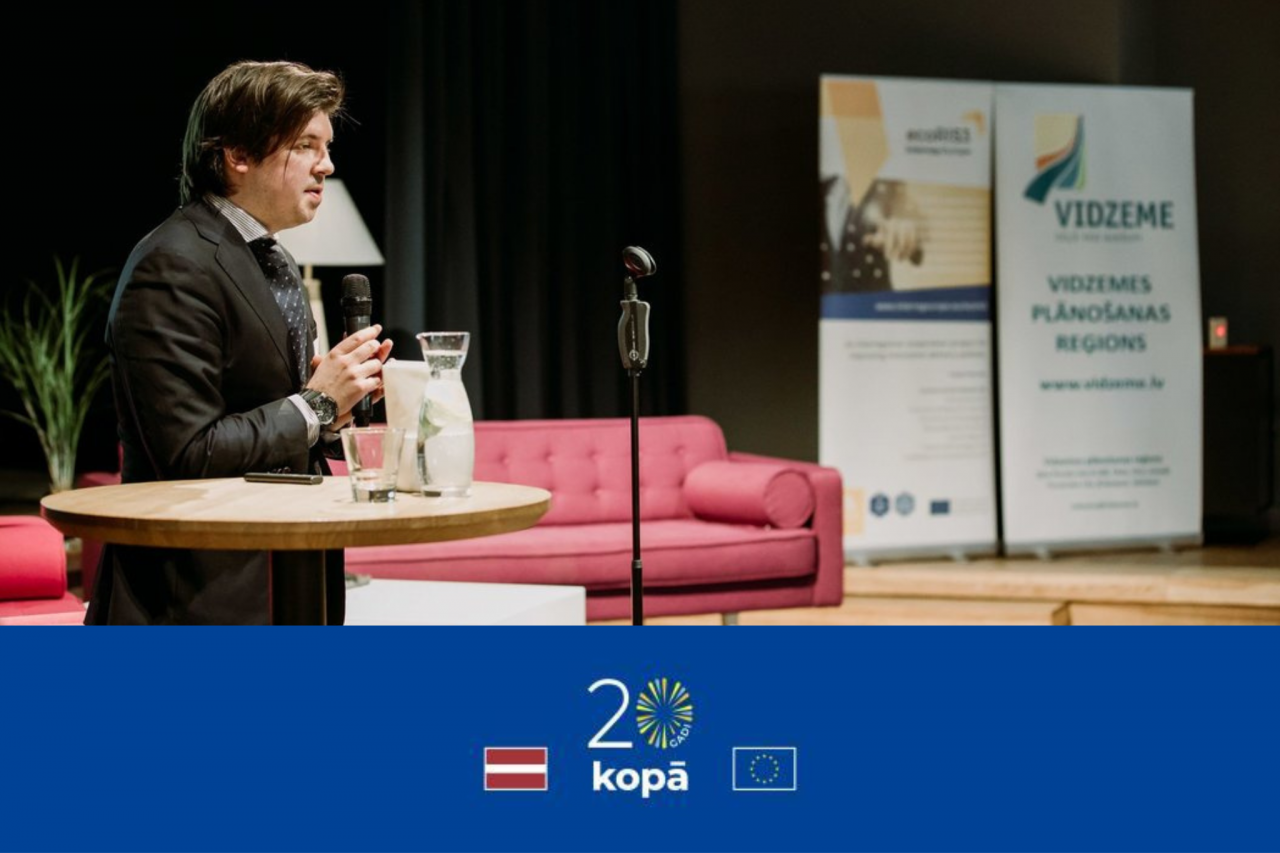One of the most significant challenges in the context of innovation and growth is the transfer and commercialization of knowledge and inventions from research and technology organizations. The goal of the Interreg Europe ecoRIS3 project was to strengthen stable interaction within the Smart Specialization Strategy (RIS3) framework, promote private sector investment in research, development, and commercialization of research results, and improve business productivity and competitiveness.
Particularly important is the use of research results in the areas of smart specialization (RIS3) at the local and regional level. Therefore, the project partners (led in Latvia by the Vidzeme Planning Region) agreed on the need to improve collaboration within innovation ecosystems, linking RIS3 challenges with regional policy support instruments.
The Covid-19 Crisis and Its Impact on Innovation
EcoRIS3 partners received approval to implement additional activities to analyze the impact of Covid-19 on the Action Plan implementation. Solutions were developed to mitigate the effects of the Covid-19 crisis on small and medium-sized enterprises (SMEs) and to promote eco-innovation and collaboration between SMEs and research institutions. During the project, it was identified how Covid-19 impacted innovation ecosystems in partner regions by analyzing barriers to business development and exploring new opportunities and solutions. The project concluded with recommendations to enhance eco-innovation policy and support tools in the Vidzeme region.
Activities Carried Out:
Experience and knowledge exchange events among project partners (study visits, working groups, seminars);
Identification and compilation of best practices;
Research on innovation ecosystems in smart specialization areas;
Regional policy planning and recommendations for improving policy instruments;
Development of a smart specialization strategy and action plan for Vidzeme region;
Publicity of project results.
Additional Activities for Mitigating Covid-19 Crisis Effects:
Research on how Covid-19 affected the Action Plan implementation and innovation ecosystems in the Vidzeme region;
Collaboration with SMEs, municipalities, innovation policymakers, support organizations, educational and research institutions to assess Covid-19 impacts and identify development opportunities;
Sharing best practices with partners through two interregional meetings;
Publicity activities.
Project Results:
Improved regional policy support for innovation ecosystems in smart specialization areas;
Enhanced collaboration among key stakeholders to ensure a sustainable innovation ecosystem and knowledge transfer;
Developed smart specialization strategy and action plan for the Vidzeme region;
Acquired partner experience in the transfer and commercialization of innovation knowledge in smart specialization areas.
Examples of Latvian Companies Involved in the Project (2017–2022):
SIA “Rūjienas saldējums” develops sustainable packaging solutions
In collaboration with the Vidzeme Planning Region, SIA “Rūjienas saldējums” began developing a sustainable packaging concept in response to new regulations aiming to reduce plastic product consumption, a challenge affecting many businesses.
SIA “Felici” creates two new products with project support
Through the Vidzeme Planning Region’s pilot activity, which provides specialist innovation project management support, food manufacturer SIA “Felici” developed two new product formulations in less than a year.
SIA “Valmiermuižas alus” launches a sports-oriented beer with project support
As part of the Vidzeme Planning Region’s pilot initiative, SIA “Valmiermuižas alus” received assistance to develop a new product: Latvia’s first isotonic non-alcoholic beer designed specifically for athletes, Kokmuiža’s “Test Nr. 19.”
Overall, this international project fostered more effective development of innovation ecosystems and created a platform for long-term growth and regional development based on eco-innovation and strong partnerships.
